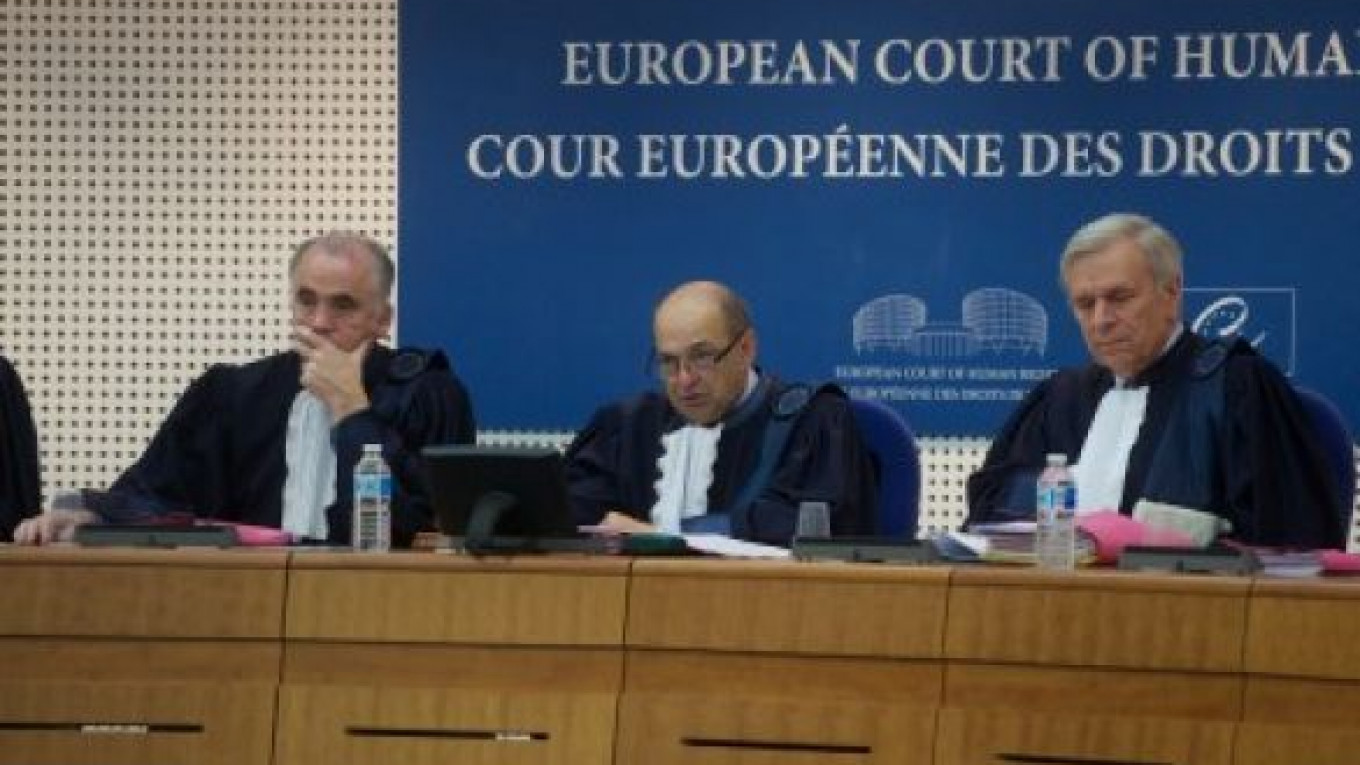Eleven prominent rights groups have sent a complaint against Russia’s so-called foreign agent law, which targets NGOs engaged in political activities, to the European Court of Human Rights.
The organizations argued on Thursday that the legislation violates the Constitution and fundamental human rights — such as the freedoms of expression and assembly — by threatening the groups with closure.
“The law is a real threat and might be applied against us any minute,” Oleg Orlov of the Memorial human rights center, told reporters in Moscow.
Apart from Memorial, the complaint’s other 10 submitters include the Moscow Helsinki Group, the For Human Rights movement and the Golos vote watchdog.
The law, which came into force in November, stipulates that non-governmental organizations must label themselves “foreign agents” if they receive foreign funding and engage in political activity.
Its opponents argue that the law’s declared aim — to increase transparency in NGO funding — does not correspond to its real aim of stifling the activities of pro-democracy and human rights groups. Critics also complain that the law’s definition of political activity — shaping public opinion and influencing political decision-makers — is so vague that it can be applied to any aspect of their work.
According to the law, such organizations must register themselves as foreign agents with the Justice Ministry, but none has done so. Most human rights organizations have vowed to defy the law, which threatens non-complying organizations with closure and their heads with criminal charges.
The activists said Thursday that they want the Strasbourg-based court to give the complaint priority status.
They also argued that their case justifies a complaint before having exhausted national courts because of the imminent serious threat against NGOs and their staff.
Neither the government nor law enforcement agencies have given an indication whether or when they would crack down on the non-compliance with the foreign agent law.
Contact the author at n.twickel@imedia.ru
Related articles:
A Message from The Moscow Times:
Dear readers,
We are facing unprecedented challenges. Russia's Prosecutor General's Office has designated The Moscow Times as an "undesirable" organization, criminalizing our work and putting our staff at risk of prosecution. This follows our earlier unjust labeling as a "foreign agent."
These actions are direct attempts to silence independent journalism in Russia. The authorities claim our work "discredits the decisions of the Russian leadership." We see things differently: we strive to provide accurate, unbiased reporting on Russia.
We, the journalists of The Moscow Times, refuse to be silenced. But to continue our work, we need your help.
Your support, no matter how small, makes a world of difference. If you can, please support us monthly starting from just $2. It's quick to set up, and every contribution makes a significant impact.
By supporting The Moscow Times, you're defending open, independent journalism in the face of repression. Thank you for standing with us.
Remind me later.







